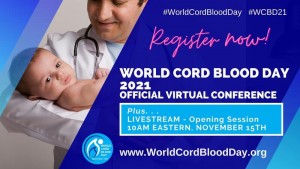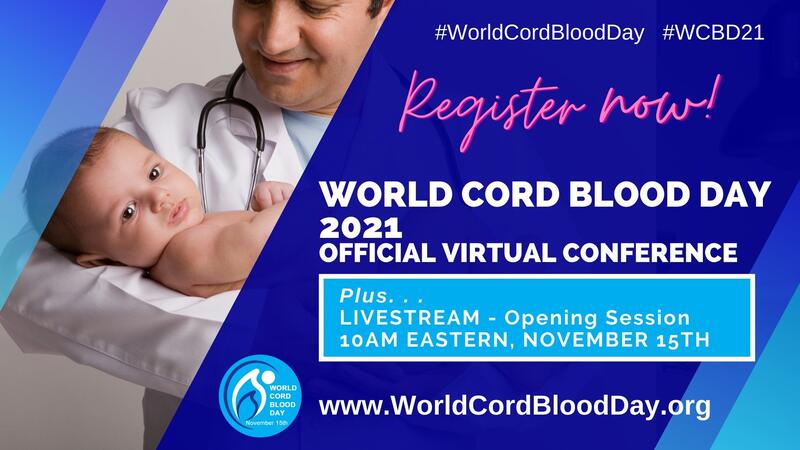 A joyous occasion for parents around the world – the birth of a baby – can bring something just as miraculous to patients. Cord blood that remains in the placenta and umbilical cord after a child is born is helping doctors treat more than 80 life-threatening diseases. The collection process occurs after the baby is born and poses no risks to the mother or baby.
A joyous occasion for parents around the world – the birth of a baby – can bring something just as miraculous to patients. Cord blood that remains in the placenta and umbilical cord after a child is born is helping doctors treat more than 80 life-threatening diseases. The collection process occurs after the baby is born and poses no risks to the mother or baby.
Today is World Cord Blood Day.
There have been more than 40,000 cord blood stem cell transplants since a French doctor first used the procedure in 1988. Cord blood stem cells are currently used to treat more than 80 different life-threatening diseases such as leukemia, lymphoma, and sickle cell anemia. Cord blood stem cells are also proving critical to new areas of regenerative medicine to potentially treat spinal cord injuries, cerebral palsy, autism, Type 1 diabetes, and much more.
The Arizona Public Cord Blood Program was created in 2011 to advance the collection of cord blood and increase the number of units available for transplantation. It is a publically funded program working to save lives through cord blood collection for transplant and support the discovery of new treatments and cures.
Participating hospitals include Dignity Health (St. Joseph’s Hospital and Medical Center in Phoenix and Chandler Regional Medical Center), Valleywise Health and Medical Center, and Tucson Medical Center.
The nonprofit Save The Cord Foundation, based in Tucson, provides non-commercial education, information and cord blood-banking resources to expectant parents and the public for saving umbilical cord blood stem cells via public donation or private banking.










